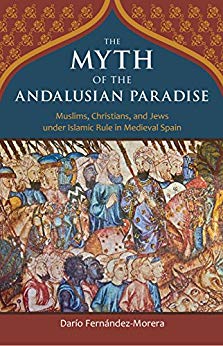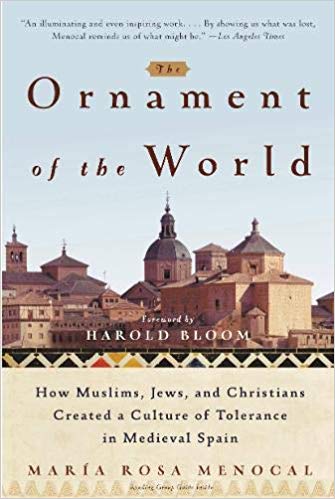|
The Myth of the Andalusian Paradise: Muslims, Christians, and Jews under Islamic Rule in Medieval Spain
By Dario Fernandez-Morera Published in February 2016 376 Pages Thibault’s Score: 3/5 The Myth of the Andalusian Paradise is a refutation of the scholars like Maria Rosa Menocal who argues in books such as The Ornament of the World that Islamic Spain was a tolerant society. I was shocked when I read Fernandez-Morera’s book to find that his view of Medieval Spain contrasted so sharply with Maria Rosa’s view, and that she barely described any of the violence. Most notably was the ubiquitous presence of sex slavery in Islamic society. Muslim men would buy Christian women as sex slaves, then mass impregnate them. They would allow Christians to breed to keep a livestock population of second class citizens. The sex slavery was just the tip of the iceberg. Countless massacres, genocides, and population displacements tormented the people of medieval Iberia. Churches and synagogues were razed, books burnt, and art destroyed. In Dario Fernandez-Morera’s image of the epoch, Muslims are not enlightened despots. Instead, they are ravaging invaders. I suspect that Dario Fernandez-Morera is closer to the truth than Maria Rosa Menocal, but need to questions his historiography as well. I am not sure that neighboring Christian societies were not just as barbaric as Muslim Spain. The Crusader States, which I have recently read about, also seem like they were very barbaric. Either way, I gained a lot from reading the two books side by side. I recommend reading both books, and keeping in mind that both are biased.
1 Comment
The Ornament of the World: How Muslims, Jews, and Christians Created a Culture of Tolerance in Medieval Spain
By Maria Rosa Menocal Published in April 2003 315 Pages Thibault’s Score: 3/5 The point of this book is to argue that Islam was very tolerant and highly learned in the Middle Ages in Spain. This book was written with a clear agenda to make Muslims look good, and that is immediately disclosed in the book’s opening pages. The history of the era is fascinating. I enjoyed learning about how Jews re-created Hebrew, and how Muslims preserved and translated Roman Classics. However that enjoyment was muted by what felt like a constant propagandistic tone that permeates the book. For example, Maria Rosa Menocal tries very hard to downplay the martyrdom of Christians who protested against the Islamic government. She argues that the Christian martyrs deserved to be killed because they were troublemakers and provocateurs. This position struck me as very morally dubious. My favorite chapter was the one describing how Maimonides developed Jewish doctrine. He essentially invented Hebrew, using old oral traditions and Spanish Arabic. Overall, I don’t recommend reading this book alone. It is very biased in favor of the Muslim invaders. I read this book alongside The Myth of the Andalusian Paradise and found it really strange that Maria Rosa Menocal doesn’t address any of the horrors and extremely brutal aspects of the Islamic domination. I do recommend reading this book along The Myth of the Andalusian Paradise for the sheer polemic value. |
Thibault SerletMost of my articles are book reviews, but I also write about many other topics. Archives
December 2023
Categories |


 RSS Feed
RSS Feed